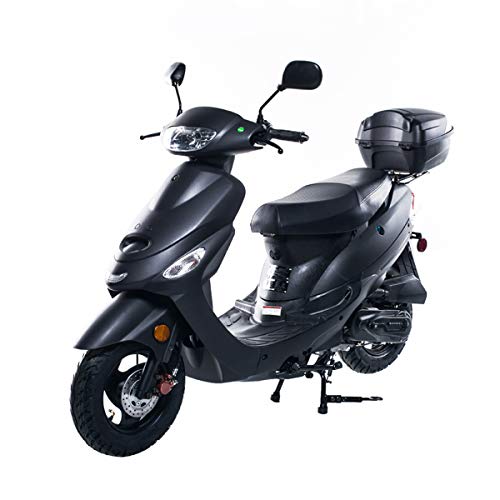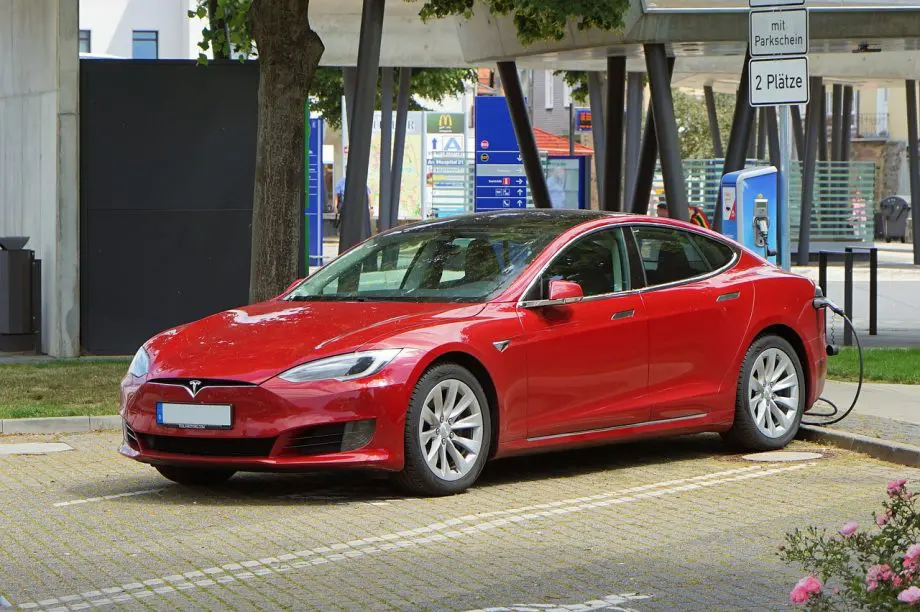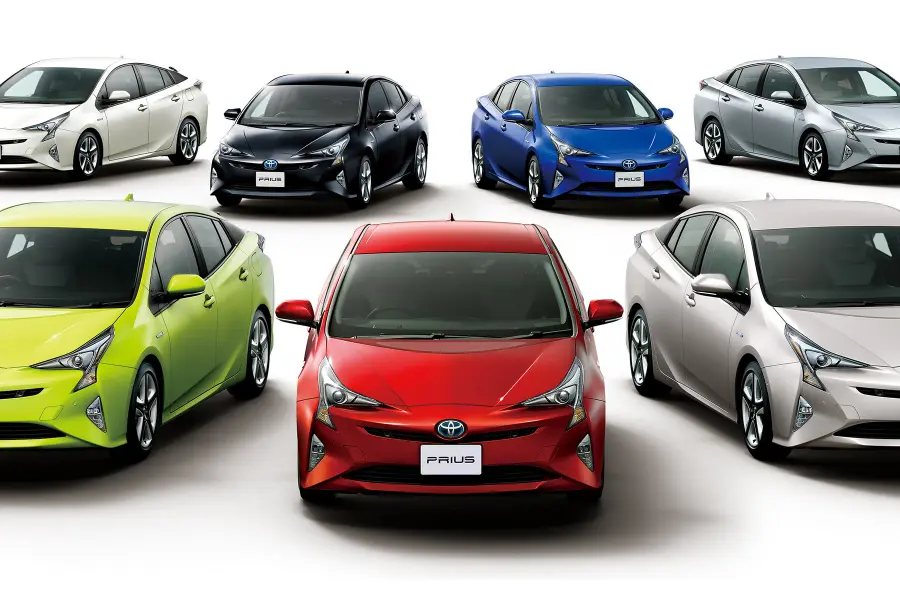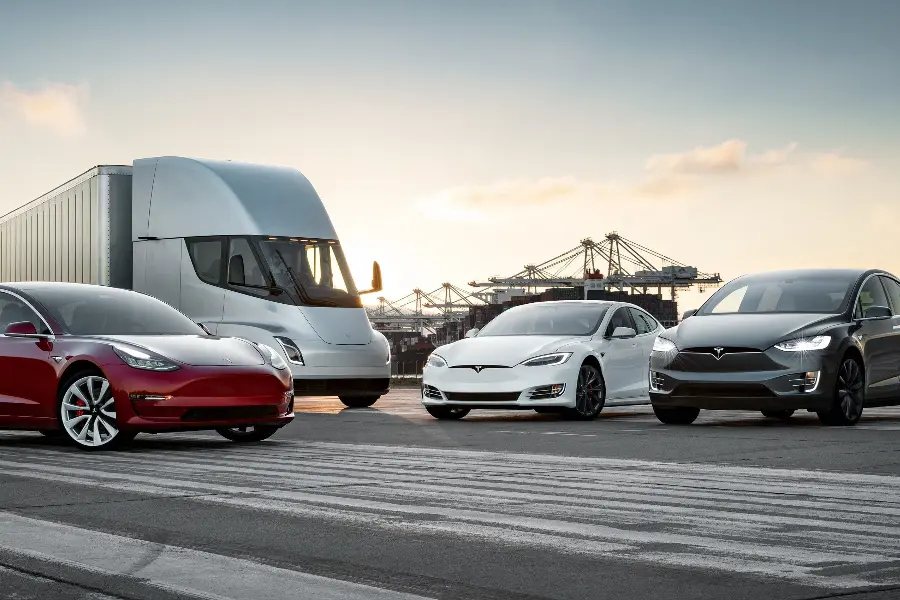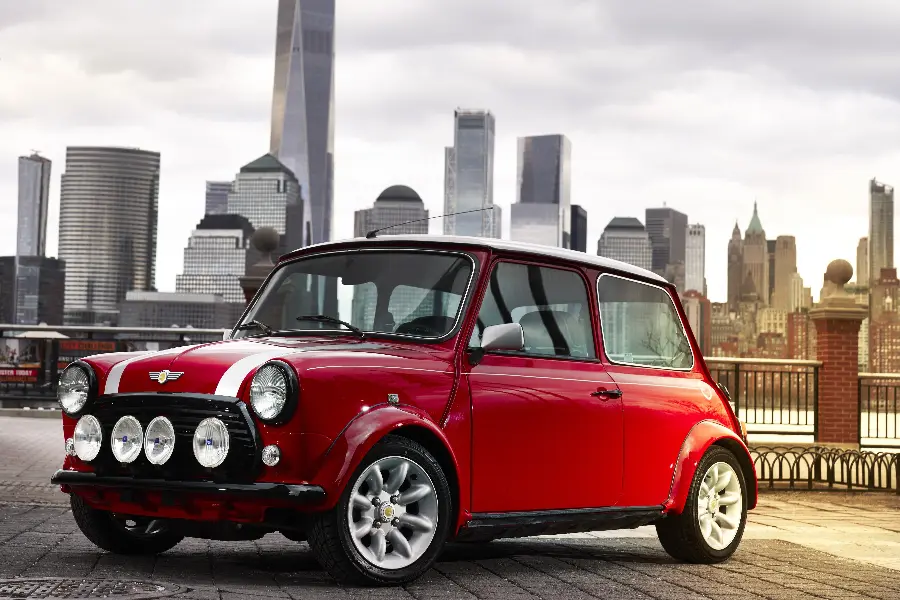
Discover the future of travel by comparing Electric Cars Electric Bikes and E Scooters. Which is Right for You? Dive into the pros, cons, and ideal uses of each!
Ever found yourself at a crossroads, wondering which electric vehicle is the perfect fit for you? Well, you’re not alone.
Are you comparing electric cars, bikes, and scooters and trying to decide which is right for you? it’s the question on everyone’s lips these days.
As we zoom into a future moving away from internal combustion engines, it’s time we took a closer look at these eco-friendly alternatives to traditional transportation.
So, buckle up, and let’s embark on this electrifying journey together!
Comparing Electric Cars Electric Bikes and E Scooters
Welcome to our deep dive into the world of electric vehicles! In this post, we’re going to be comparing electric Cars, e-Bikes, and electric scooters to help you find out which is right for you.
We’ll explore the ins and outs of these three types of electric vehicles, discussing their benefits, drawbacks, and ideal users.
We’ll also pit them against each other in a head-to-head comparison on cost, range, speed, convenience, and environmental impact.
And if you’ve got questions, we’ve got answers! We’ll tackle some of the most frequently asked questions about electric vehicles.
So, whether you’re a daily commuter, a weekend adventurer, or just curious about the future of transportation, this post has something for you.
Brief Overview of Electric Vehicles
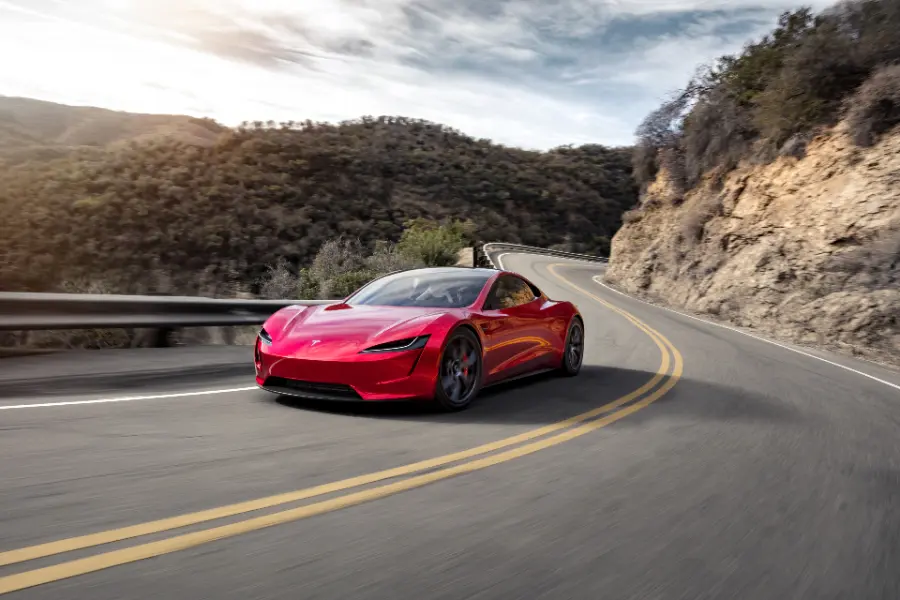
Let’s start with a quick snapshot of what electric vehicles are all about. Electric vehicles, or EVs as they’re often called, are a fantastic innovation in the world of transportation.
They’re powered by electricity, unlike traditional vehicles that run on gasoline or diesel.
This electricity can come from a variety of sources, including solar power, wind power, or even the electrical grid.
There are different types of EVs, including electric cars, electric bikes, and electric scooters.
Each has its own unique features and benefits, and they’re all part of a growing trend towards more sustainable, environmentally friendly modes of transportation.
Importance of Choosing the Right Electric Vehicle
Now, you might be wondering, why does it matter which electric vehicle I choose?
Well, the answer is simple: different EVs are suited to different needs and lifestyles.
For example, if you’re a city dweller who needs to zip around town quickly and easily, an electric scooter might be your best bet.
On the other hand, if you’re looking for a vehicle that can handle longer commutes and carry more cargo, an electric car or bike might be a better fit.
Choosing the right personal electric vehicle can ensure that you get the most out of your investment, both in terms of convenience and cost-effectiveness.
Plus, it’s an important step towards reducing your carbon footprint and contributing to a more sustainable future.
So, let’s dive in and explore these options in more detail!
Understanding Electric Cars
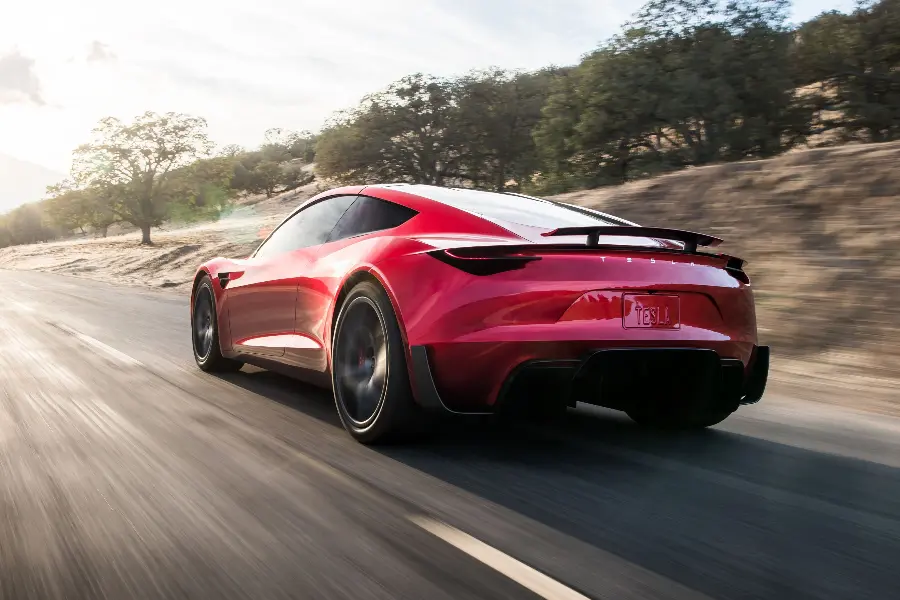
Alright, let’s shift gears and focus on our first contender in the electric vehicle lineup: the electric car.
These sleek, silent, and sustainable machines are becoming increasingly popular on our roads, and it’s not hard to see why.
But what exactly makes an electric car tick? What are the benefits and drawbacks, and who are they ideal for?
Let’s pop the hood on these eco-friendly roadsters and find out!
What are Electric Cars?
Electric cars, often referred to as EVs (Electric Vehicles), are automobiles that are propelled by electric motors, using energy typically stored in rechargeable batteries.
Unlike conventional vehicles that use a gasoline or diesel-powered engine, electric cars get their power from electricity.
You’re not filling up the car with gas; instead, you’re charging your car’s lithium-ion batteries like you would a smartphone or laptop. Pretty cool, right?
Benefits of Electric Cars
There’s a lot to love about electric cars. For starters, they’re incredibly energy efficient.
Unlike gasoline-powered cars, electric cars convert over 77% of the electrical energy from the grid to power the wheels.
They’re also cheaper to maintain, thanks to fewer moving parts than traditional petrol or diesel-fueled cars.
Plus, they’re quiet (no more noisy engine sounds!) and produce zero tailpipe emissions, making them a great choice for the environment.
Drawbacks of Electric Cars
However, electric cars do have a few drawbacks. The most significant one is probably the initial cost.
Electric cars can be more expensive to purchase upfront than their gasoline counterparts, although costs are coming down.
The range can also be a concern. While electric cars can handle daily commuting with ease, longer trips may require a bit of planning to ensure there are enough charging stations along the way.
Lastly, charging infrastructure, while rapidly improving, is not as widely available as traditional gas stations.
Ideal Users of Electric Cars
So, who are electric cars ideal for? Well, they’re a fantastic option for daily commuters, as they can handle a longer range and handle most daily driving ranges comfortably on a single charge.
They’re also great for those who have the ability to charge at home or work, as this makes the charging process more convenient.
And of course, they’re excellent choices for anyone looking to reduce their carbon footprint and contribute to a more sustainable future.
So, if any of these descriptions sound like you, an electric car could be just the ticket!
Understanding Electric Bikes

Having explored the world of electric cars, let’s now pedal our way into the realm of e-bikes.
These nifty two-wheelers are gaining popularity for their ease of use. They offer a blend of manual and electric power, offering a unique way to get around.
But what exactly is an electric bike? What are its pros and cons, and who would find it most beneficial?
What are Electric Bikes?
Electric bikes, also known as e-bikes, are basically an electric bicycle with an integrated electric motor that can be used for propulsion.
They’re like a regular conventional bike, but better! They have all the key components of a traditional bicycle, the pedals, the seat, the handlebars.
But they also have an added bonus: a motor that gives you a nice boost when you need it.
They also often have larger wheels than a regular bike and a more robust suspension system for a smoother ride.
This can make cycling less strenuous and more enjoyable, especially when you’re tackling hills or headwinds.
In major cities, you often can save time commuting as many cities now have bike lanes that are not congested like most heavy-traffic city streets.
Benefits of Electric Bikes
E-bikes come with a host of benefits. First off, they can make cycling accessible to more people.
Whether you’re recovering from an injury, trying to improve your fitness, or just not a fan of sweating on your way to work, an e-bike can help.
They’re also faster than regular bikes, which can make your commute quicker and more efficient.
Plus, like all electric vehicles, they’re environmentally friendly. They produce zero emissions, consume less energy, and even take up less space than cars, making them a great choice for the planet.
Drawbacks of Electric Bikes
Despite their many benefits, e-bikes do have a few drawbacks. They’re typically more expensive than regular bikes, although the cost can vary widely.
They’re also heavier, which can make them harder to transport or maneuver when the motor isn’t in use.
And while the electric assist can be a big help, it also means you’ll need to remember to charge your bike regularly.
Ideal Users of Electric Bikes
So, who are the ideal users of electric bikes? E-bikes can be a great fit for commuters, especially those who have a longer distance to travel or don’t want to arrive at work sweaty.
They’re also a good choice for people who want to cycle for exercise but need a little help with hills or longer distances.
And of course, they’re perfect for anyone who wants a more sustainable, eco-friendly mode of transportation.
So, if you’re looking for a fun, efficient, and green way to get around, an e-bike could be just the ride for you!
Understanding Electric Scooters

Having cruised through electric cars and pedaled our way around electric bikes, it’s time to scoot over to our next contender: the electric scooter.
These compact, two-wheeled vehicles are becoming a common sight in cities around the world. But what makes an electric scooter tick?
What are its advantages and disadvantages, and who would benefit most from owning one? Let’s kick off and find out!
What are Electric Scooters?
Electric scooters, or e-scooters, are scooters that are powered by an electric motor.
Much like their manual counterparts, they have two wheels, a handlebar, and a platform to stand on.
But instead of pushing off the ground with your foot, you simply twist the throttle, and off you go! They’re a fun, modern twist on a classic form of transportation.
Benefits of Electric Scooters
Electric scooters have a lot going for them. They’re lightweight and portable, making them easy to maneuver and store.
They’re also great for going short distances around town, whether you’re commuting to work, running errands, or just out for a leisurely ride.
Plus, like all electric vehicles, they’re environmentally friendly. They produce zero emissions and consume less energy than larger vehicles, making them a great choice for eco-conscious riders.
Drawbacks of Electric Scooters
However, electric scooters aren’t without their drawbacks. They have a shorter range than electric cars or bikes, so they’re not ideal for longer trips.
They also have smaller wheels and less suspension than bikes, which can make for a less comfortable ride on bumpy roads.
An e-scooter battery is small and has limited storage capacity. And while they’re generally less expensive than electric cars or bikes, they can still be a significant investment, especially for higher-end models.
Ideal Users of Electric Scooters
So, who are electric scooters ideal for? They’re a great option for urban dwellers who need to make short trips around town.
They’re also a good choice for commuters who can charge their scooter at work, or for anyone who values a lightweight, portable mode of transportation.
And of course, they’re perfect for anyone looking to reduce their carbon footprint and make a more sustainable choice.
So, if you’re looking for a fun, efficient, and green way to get around on city streets, an electric scooter could be just the ride for you!
Electric Mopeds or Electric Motor Scooters
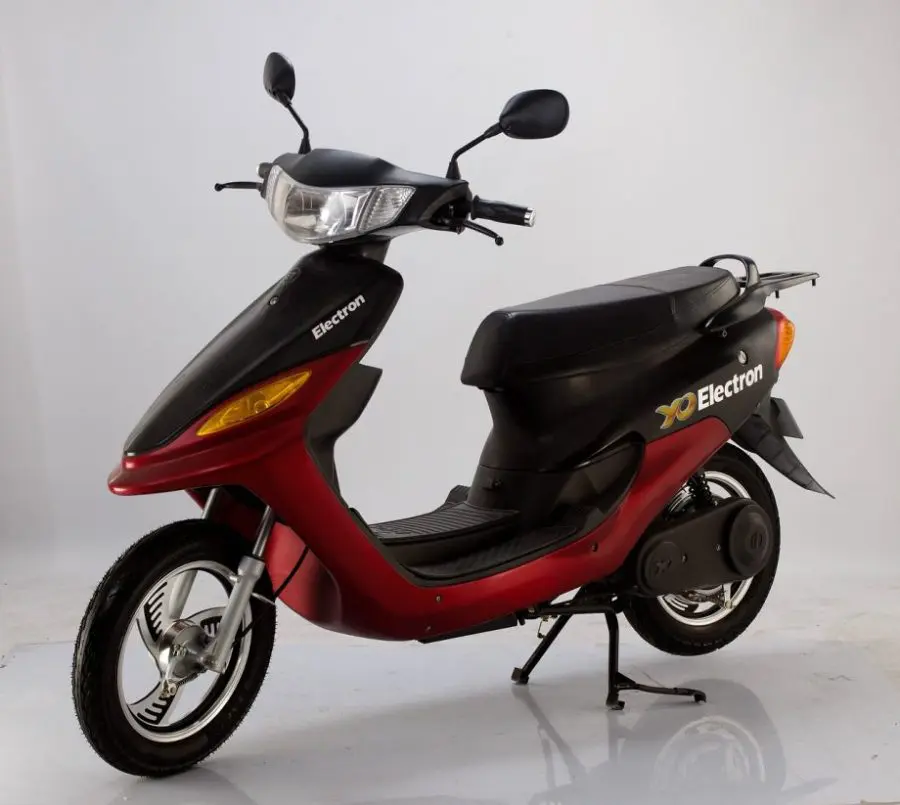
Electric mopeds or electric motor scooters are a different breed from the stand-up electric scooters we’ve been discussing.
What Are Electric Mopeds?
Electric mopeds or motor scooters are more akin to traditional motorcycles but powered by electricity.
They typically have a step-through frame and a platform for your feet, and the biggest difference is they’re designed for longer distances and higher speeds than stand-up electric scooters or electric bikes.
They also usually come with larger batteries, more powerful motors, and features like headlights, tail lights, and turn signals, making them more suitable for road use.
Benefits of Electric Motor Scooters
The benefits of these types of electric scooters include greater range and speed, more comfort for longer rides, and often, the ability to carry a passenger or cargo.
They can be a great option for those who need a more robust form of transportation but still want the benefits of electric power.
Drawbacks of Electric Mopeds
However, they also have some drawbacks. They’re typically more expensive than stand-up electric scooters, and they may require a special license or insurance to operate, depending on local laws.
They’re also larger and heavier, which can make them less convenient for short trips or for carrying up and down stairs.
Ideal Users of Electric Motor Scooters
Ideal users of electric mopeds or motor scooters might include those who have longer commutes that need longer battery life, those who need to carry cargo or a passenger, or those who simply prefer the style and comfort of a moped or motor scooter.
For them, this may be their best option. As always, it’s important to consider your specific needs and circumstances when choosing an electric vehicle.
Comparing Electric Cars, Bikes, and Scooters
Now that we’ve taken a closer look at electric cars, bikes, and scooters, it’s time to put them head-to-head.
How do they stack up against each other when it comes to cost, range, speed, convenience, and environmental impact?
Which one will emerge as the champion of electric transportation? Let’s dive into the comparison and find out!
Comparison Based on Cost
When it comes to cost, there’s quite a range across our three types of electric vehicles.
Electric cars tend to be the most expensive upfront, but they can also offer significant savings over time in terms of fuel and maintenance costs.
Electric bikes and scooters are generally more affordable to purchase, but the cost can vary widely depending on the model and features.
It’s also worth considering the cost of electricity for charging, which is typically much lower than the cost of gasoline but can add up over time.
Comparison Based on Range and Speed
In terms of range and speed, electric cars generally come out on top. They’re designed for longer distances and higher speeds, making them a good choice for long commutes or road trips.
Electric bikes offer a balance of range and speed, with the added benefit of being able to switch to pedal power if the battery runs low.
Electric scooters are best suited for short trips and lower speeds, although some models can reach impressive speeds and ranges.
Comparison Based on Usage and Convenience
When it comes to usage and convenience, it really depends on your individual needs.
Electric cars are great for long distances, carrying passengers or cargo, and driving in all types of weather.
Electric bikes offer the flexibility of manual or electric power, making them a versatile choice for commuting or recreational riding.
Electric scooters are lightweight and portable, making them ideal for short trips around town or for combining with public transportation.
Comparison Based on Environmental Impact
All three types of electric vehicles offer significant environmental benefits compared to gasoline-powered vehicles.
They produce zero tailpipe emissions, consume less energy, and contribute to reduced air and noise pollution.
However, it’s worth noting that the environmental impact of producing and disposing of the batteries used in electric vehicles is a concern, and the electricity used to charge them can also have an environmental impact depending on the source.
That said, as renewable energy becomes more widespread and battery technology improves, these impacts are likely to decrease.
Electric Cars, Electric Bikes, Electric Scooter Comparison Table
| Electric Cars | Electric Bikes | Electric Scooters | |
|---|---|---|---|
| Cost | High upfront cost, but potential for long-term savings | Moderate upfront cost, varies by model | Generally, lower upfront cost varies by model |
| Range and Speed | Longest range and highest speed | Moderate range and speed, can use pedal power if the battery runs low | Best for short-range and lower speeds |
| Usage and Convenience | Great for long distances, carrying passengers or cargo, all-weather driving | Versatile for commuting or recreational riding, can switch to pedal power | Lightweight and portable, ideal for short trips and combining with public transport |
| Environmental Impact | Zero tailpipe emissions, less energy consumption, concerns about battery production/disposal | Zero tailpipe emissions, less energy consumption, can use pedal power to reduce energy use | Zero tailpipe emissions, least energy consumption, concerns about battery production/disposal |
FAQs
Alright, we’ve covered a lot of ground, but you might still have a few questions buzzing around your head. Don’t worry, we’ve got you covered!
Let’s tackle some of the most frequently asked questions about electric cars, bikes, and scooters.
From figuring out which is better for commuting to understanding the pros and cons of each, we’re here to clear up any lingering confusion. Let’s get those questions answered!
Q: Which is better: electric bike or electric scooter?
A: The answer to this question really depends on your specific needs and circumstances.
If you’re looking for something lightweight, portable, and great for short trips around town, an electric scooter might be the better choice.
On the other hand, if you need a vehicle that can handle longer distances, or you want the flexibility of being able to pedal manually, an electric bike might be the better option.
Q: Is an electric bike or electric scooter better for commuting?
A: Both electric bikes and scooters can be great for commuting, but the best choice depends on the specifics of your commute.
If you have a longer commute, or your route includes hills or rough terrain, an electric bike might be more comfortable and efficient.
If your commute is shorter, or you need a vehicle that’s easy to take on public transportation or store in a small space, an electric scooter might be the better choice.
Q: What are the positives and negatives of e-scooters and e-bikes?
A: E-scooters and e-bikes both have their pros and cons. On the positive side, they’re both environmentally friendly, convenient for short trips and fun to ride.
E-bikes also offer the added benefit of being able to pedal manually, which can be a great workout.
On the downside, both can be expensive to purchase, and they require regular charging.
E-scooters can also be less comfortable for long rides, while e-bikes are typically heavier and harder to carry or store.
Q: Why is everyone using electric scooters?
A: Electric scooters have become popular for a number of reasons. They’re lightweight and portable, making them easy to use in combination with public transportation.
They’re also fun to ride and can be faster and more efficient than walking for short trips around town.
Plus, they’re a more sustainable choice than driving a car, especially for short trips.
Conclusion
As we cruise to the end of our journey exploring electric cars, bikes, and scooters, it’s time to reflect on what we’ve learned.
We’ve delved into the specifics of each vehicle, compared them head-to-head, and answered some burning questions.
But what does all this mean for you? Let’s wrap things up and offer some final thoughts on choosing the right electric vehicle for your needs.
Recap of the Comparisons
We’ve covered a lot of ground in our exploration of electric cars, bikes, and scooters.
We’ve learned that electric cars are great for long distances, carrying passengers or cargo, and all-weather driving, but they come with a higher upfront cost.
Electric bikes offer a balance of speed and range, with the added benefit of being able to switch to pedal power if needed, making them a versatile choice for many.
Electric scooters are lightweight and portable, ideal for short trips around town or for combining with public transportation.
Final Thoughts on Choosing the Right Electric Vehicle
Choosing the right electric vehicle ultimately comes down to your individual needs, lifestyle, and preferences.
If you’re a city dweller making short trips, an electric scooter might be your best bet.
If you have a longer commute or enjoy recreational cycling, an electric bike could be the way to go.
And if you need a vehicle for long distances, carrying passengers or cargo, or all-weather driving, an electric car might be your top choice.
Remember, there’s no one-size-fits-all answer here.
The best electric vehicle for you is the one that fits your lifestyle, meets your needs, and makes you excited to get out on the road (or bike lane, or sidewalk).
So take the time to consider your options, do your research, and maybe even take a few test drives (or rides).
The future of transportation is electric, and there’s a perfect electric vehicle out there for everyone!



